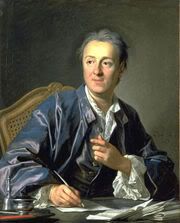Percival Frementia
| Percival Frementia | ||||||||
|---|---|---|---|---|---|---|---|---|

| ||||||||
|
Emperor Theodore the Second (1793-1853) was the third Imperial power in the Empire of Ileou and it's second Emperor. While his predecessors concentrated on simply setting up the governemnt and making it work, Theodore II, set up the plans for a progressive government
Contents
Early Life
Percival Frementia was born in Nordeou to the eldest Frementia brother, Jacob. He, with the respect given one for being of the Imperial Family, went to the finest colleges. Percival attended the Naval academy at Nordeou (Academy in Retrea today). He was an apt officer, not born for combat but for paperwork and politics. Like his uncle Theodore, Percival became a lawyer.
Military Counsel
Percival, in just over a decade, was the chosen attornet for both the Army and Navy. The young military was rarely on the losing end when Senior Lieutenant Frementia was prosecuting. In just the decade he served, Percival flew up the ladder to be a senior officer in the Navy. At this time, Percival became one of the harshest critics of the Southern Dominion. He insulted every aristocratic family of the dominion, saying they were power hungry leeches who wished for nobility. These opinions were written as letters and sent to aristocrats of the south and newpapers in the north, signing always as Frementia Imperia.
Percival, despite his criticisms of slavery and southern society, was easily as influential as any Admiral. As such, the Navy felt it as a bit of a relief when Percival resigned his commission in 1810 to be Chief Justice of the Supreme Court, at his uncle's request.
Supreme Court, Crown Prince
Chief Justice Percival was by all means a harsh judge. In the cases that came before him, his judgements were hard, cold, and fair. Ileousan law solidified under him, with Percival going so far as to fire Judges of lesser courts on the grounds that their character was "not of the standard that Ileousan Justices are to be held to." Some hated him to overstepping the few constitutional powers granted him, others loved him for filling the Judicial Branch with strong personalities.
Atticus Grit vs. Michael Howimir
One very controversial case that came before him was this one. Grit was a colored man who had been freed some decades before for his service to General Finchard in the Revolution. He had left the army a free man after a year and a half of honorable service, a decree made by General Finchard during the war. He now asked for his children to be given to him as they were his property under archaic marriage law. Howimir said nay. He had bought Grit and his wife, and by extension, their children. He refused to even let Grit see them.
Justice Frementia got out from behind his bench and stood before Howimir to deliver his famous decision.
"Mr.Howimir, the children are the property of Mr. Grit. Your claims are clinging to the laws of the Nation that once ruled Ileou, not the soverign laws of today. Ileousan law and by extension, orders by our Generals, supercede those laws. If you don't give the man his children, I will put my naval uniform on and beat the hell out of you. While I acknowledge the ownership of his wife that you have, he has a claim to her as well. He is a citizen. If I find out anything has happened to her that should not happen to a citizen of Ileou, I will put on my Naval Uniform and beat the hell out of you... get out of my court." Chief Justice Precival Frementia
Crown Prince
While serving as Chief Justice, Percival was allowed to become Crown Prince on the grounds that he oculd hold both titles so long as he only be given the power of Chief Justice. On a cloudy January day, Percival was told of the Emperor's passing, he'd died from heart failure at the age of 69.
Emperor Theodore II
Out of respect for his lifelong idol, Percival took up the psudonym of Theodore II. This did little to increase his already shaky reputation after the Grit Case. In the Palace, Theodore II was as strong as he was on the bench.
To begin with, Theodore II placed protective tariffs to keep the Ileousan economy afloat. That was just the first move he made. Within the first month of taking office, he announced that the capital would be renamed to Fementia Imperia. Along with most things in his administration, this had mixed results. Many felt it nice to honor Isabella and Theodore. And yet others though that Theodore II, or "Judge Percy", was pumping his own ego.
Emancipation Controversy
Just a year into his tenure as Emperor, Theodore II overturned a Supreme Court decision. The new Chief Justice had tried overturning the decision of the Grit case. Theodore had the Chief Justice unbenched for attempting to enslae free citizens of Ileou. In a letter to the supreme court, he added
"This will not happen again. You cannot be entrusted with the freedom of my people. Emancipation is my only route." Emperor Theodore II
Legacy
Though one of the most beloved figures in Ileousan history now, Theodore II was eithe hated or loved. Some wanted to usurp him or dethrone him. Still others took it upon themselves to personally guard him. At any time, Emperor Theodore II had twenty volunteer bodyguards. These became his personal agents, given legitimacy with the cretion of the Imperial Service Office which would one day become the modern Office of Covert Services.
Today, he is hailed as a hero to freedom and has many monuments, songs, and poems in his honor. The 1 Count Bill is adorned with his face.
